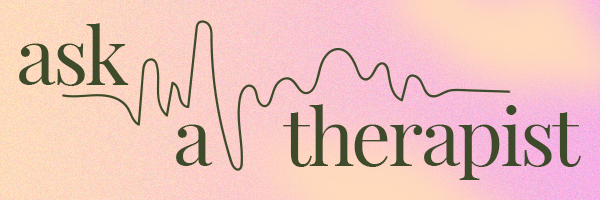Ask A Therapist: My Breakup Made Me Lose My Appetite. How Do I Move On?
Photographed by Eylul Aslan
Ever wondered what you'd say to a therapist, given the chance? We asked Dr Sheri Jacobson, a retired psychotherapist with over 17 years' clinical experience and the founder of Harley Therapy London Psychologists, for advice on the things we worry about in private.
Have a question for a therapist? Submit yours for Sheri.
Question:
I'm hung up on a guy and feel physically awful.
My very long-term ex was emotionally abusive. I'm very much over him but not over what he had done to me and while starting to get my head around it, I accidentally jumped into a 'something' with my best friend.
AdvertisementADVERTISEMENT
We dated for a few months but it definitely felt like a big shift from when we were just friends and we both struggled with it. I struggled more initially and then he seemed less comfortable while I became more so. Eventually he decided it wasn't a good idea and called it.
The thing is, I'm still very much hung up on him. I genuinely believe there could be something really good if we both weren't so scared, and in the meantime I get so stressed that I feel like I'm being torn in two. My appetite is bad, my body hurts and I cry all the time. I know realistically I need to get over him but I can't seem to do it.
How do I move on?
Allie, 24
Answer:
Difficult emotions (like jealousy, anger and heartbreak) often affect us uncomfortably. There's speculation about why this happens with heartbreak but I think the theory that most social psychologists are gravitating towards points to the importance of relationships and interpersonal dynamics (both social and romantic) for our wellbeing.
When we lose an interpersonal attachment it's a deep loss which is very painful to us as individuals. And there's the argument that the experience of that loss has that physical manifestation because it highlights to us how important that is to repair, heal from and try again. These very uncomfortable physical feelings, like appetite changes and libido changes, are a sign of significant loss that we're grieving.
AdvertisementADVERTISEMENT
This experience is also one of the stages along the grief cycle, which is a natural series of steps that we go through to recover from losing something or someone. Those steps are shock, denial, bargaining, depression and acceptance, but they can happen in any order. The depression stage is usually the most protracted phase of them all.
This is all very, very common and normal. Love is so messy, from my clinical experience. It's not something we get used to because of multiple experiences. And to add a layer of complexity, it's often either exacerbated or ameliorated by our earlier experiences.
With all this in mind, we need to let these painful emotions be and go through this cycle in a more natural way, which will mean great pain but better we go through it now than suppress it and avoid it. If we do that, it will often have a habit of leaking out sometime later, either physically or emotionally. That said, you need to ensure that you've got support mechanisms around you so that it doesn't become too intense or too protracted and impacts on your ultimate safety.
It's hard, but you should take your time in processing what is essentially a bereavement. It takes a lot longer than we think to get over a breakup. Especially in this instance, where you are possibly in double mourning about a close friend as well as a partner. Relationships and their breakups have really resounding effects. If we can allow ourselves to go through all that and the long period of mourning that's required, the better off we will be in the long run, even though it's painful.
When it comes to navigating the future of that friendship, it's about taking into consideration both parties' thoughts and feelings around the possibility of resuming a friendship. Sometimes both can agree that they've exhausted options with regards to a romantic relationship and they don't have that same emotional charge so that friendship is possible again. If both parties are aligned, then friendship can sometimes continue. The flip side is that if one person still carries a flame for the other, then it might be harder for both of them to engage in a friendship and it therefore is best avoided until both parties are emotionally ready to deal with it.
Ultimately, it takes self-compassion to allow oneself to go through that spectrum of grief emotions. If you can, view these flurries of emotions as natural and valid and manage your experience by explicitly caring for yourself. Starting inward, what can you do to nurture yourself? What would you recommend a friend do in your situation? Are there hobbies that you have neglected before that you might want to pick up? Or people whose company you missed? All of this can help you to see again that life unfolds and changes in various ways but that there can be joy within that.
AdvertisementADVERTISEMENT







